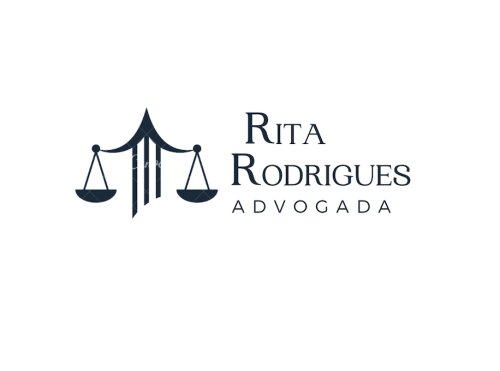Best General Litigation Lawyers in Porto
Share your needs with us, get contacted by law firms.
Free. Takes 2 min.
List of the best lawyers in Porto, Portugal
About Litigation Law in Porto, Portugal
Litigation refers to the process of resolving disputes and enforcing rights through the court system. In Porto, Portugal, litigation encompasses a wide range of legal matters, including civil, commercial, labor, and administrative disputes. The litigation process is governed by national Portuguese laws but is administered by courts located in Porto. Whether you are involved in a personal, business, or contractual dispute, understanding the basics of litigation is crucial for protecting your interests within the Portuguese legal system.
Why You May Need a Lawyer
A lawyer experienced in litigation can be invaluable in a variety of situations. Residents and businesses in Porto may find themselves needing legal representation or advice in cases such as:
- Contract disputes between individuals or companies
- Employment disagreements, such as wrongful dismissal or unpaid wages
- Property and real estate disagreements
- Debt recovery and enforcement of financial obligations
- Inheritance and succession disputes
- Personal injury or liability claims
- Intellectual property conflicts
- Administrative disputes with governmental authorities
Navigating these matters without legal guidance can be challenging due to the complexity of litigation procedures and local legal requirements. Lawyers help ensure your rights are protected, arguments are well presented, and all legal technicalities are observed.
Local Laws Overview
Litigation in Porto follows the broader framework of Portuguese law. Key elements include:
- Civil Procedure Code - Governs the steps and requirements for civil court proceedings, including filing claims, evidence submission, and appeals.
- Commercial Litigation - In business disputes, specific rules apply to contracts, corporate law, and bankruptcy matters.
- Labor Law - Disputes between employers and employees are subject to both national labor law and local labor courts, which aim for fair and expedient resolutions.
- Administrative Courts - Handle conflicts with public authorities, including licensing, taxation, and regulatory compliance issues.
- Mediation and Arbitration - Alternative dispute resolution methods are available and sometimes required before initiating litigation in court.
Cases in Porto are typically handled by the Judicial Court of Porto, as well as specialized courts for employment and administrative matters. Legal procedures can be complex and subject to deadlines, emphasizing the importance of professional guidance.
Frequently Asked Questions
What types of cases do litigation lawyers in Porto handle?
Litigation lawyers handle a wide variety of disputes, including civil, commercial, labor, property, inheritance, and administrative cases.
How do I start a lawsuit in Porto?
You usually begin by filing a formal claim or complaint with the appropriate court. This document should outline your claim and provide supporting evidence.
Can I use mediation or arbitration instead of going to court?
Yes, Portugal encourages alternative dispute resolution methods. In some instances, mediation or arbitration is required before proceeding to court.
How long does litigation usually take in Porto?
The length of litigation can vary widely depending on the complexity of the case, court schedules, and whether appeals are filed. Some cases may resolve in months, while others can take years.
What are the costs involved in litigation?
Costs include court fees, lawyer fees, expert fees, and expenses related to evidence gathering. Some costs may be recoverable if you win your case.
Is it possible to recover legal costs if I win?
Portuguese law allows the prevailing party to recover certain costs from the losing party, but this can depend on the specifics of the case and court decision.
What happens if I lose a case?
If you lose, you may be required to pay damages, comply with the court's decision, and potentially cover some or all of the opposing party's legal costs.
Do I need to attend court in person?
In most cases, personal attendance is required, particularly for hearings and trials. However, your presence may not always be necessary for certain procedural steps if your lawyer is authorized to represent you.
Can foreigners access the legal system in Porto?
Yes, both residents and non-residents have the right to access courts and legal protection in Portugal. Language assistance may be available if you do not speak Portuguese.
How can I find a qualified litigation lawyer in Porto?
You can search through the Portuguese Bar Association, local law firms, or get recommendations from consulates and legal aid organizations.
Additional Resources
If you need more information or assistance, consider the following resources:
- Portuguese Bar Association - Oversees the conduct of lawyers and provides a directory of licensed practitioners in Porto.
- Judicial Court of Porto - The main court handling civil, commercial, and criminal cases in the city.
- Centro de Arbitragem Comercial - Offers mediation and arbitration services for commercial disputes.
- Ministry of Justice - Provides information about court locations, procedures, and official forms.
- Legal Aid Offices - Assist those with limited resources in obtaining legal representation.
Next Steps
If you believe you require legal assistance with a litigation matter in Porto, follow these steps:
- Gather all relevant documents and information related to your dispute.
- Research and contact a qualified litigation lawyer or legal service provider in Porto.
- Schedule a consultation to discuss your case, potential strategies, and expected costs.
- Follow your lawyer's advice carefully, and ensure you understand any documents or agreements before signing.
- If you are eligible for legal aid, inquire about available support services through official channels.
Taking timely action with the support of experienced legal professionals greatly increases your chances of a positive outcome in any litigation matter.
Lawzana helps you find the best lawyers and law firms in Porto through a curated and pre-screened list of qualified legal professionals. Our platform offers rankings and detailed profiles of attorneys and law firms, allowing you to compare based on practice areas, including General Litigation, experience, and client feedback.
Each profile includes a description of the firm's areas of practice, client reviews, team members and partners, year of establishment, spoken languages, office locations, contact information, social media presence, and any published articles or resources. Most firms on our platform speak English and are experienced in both local and international legal matters.
Get a quote from top-rated law firms in Porto, Portugal — quickly, securely, and without unnecessary hassle.
Disclaimer:
The information provided on this page is for general informational purposes only and does not constitute legal advice. While we strive to ensure the accuracy and relevance of the content, legal information may change over time, and interpretations of the law can vary. You should always consult with a qualified legal professional for advice specific to your situation.
We disclaim all liability for actions taken or not taken based on the content of this page. If you believe any information is incorrect or outdated, please contact us, and we will review and update it where appropriate.














